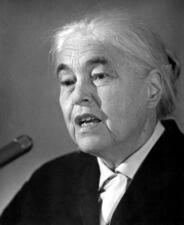
Anna Seghers
Anna Seghers is considered one of the most important German women writers of the twentieth century. Her many novels and stories written during her multiple exiles, including Das siebte Kreuz (1942) adapted into the Hollywood film “The Seventh Cross,” reflect her strong socialist and anti-fascist beliefs, and she remains controversially linked to her later involvement with the East German government.

Grace Seixas Nathan
Although it was never published in her lifetime, Grace Seixas Nathan’s writing showed her passion for her country, her family, and her religion. She began writing poetry at an early age, particularly on Jewish themes. Throughout her life, Nathan corresponded with various friends and relations, blending eloquence and emotion with a fierce wit that bring her era to life.

Alice Lillie Seligsberg
A passionate social worker and Zionist, Alice Lillie Seligsberg devoted herself to underprivileged youth and to the Zionist movement. Although Seligsberg is best known for her leadership in the national Hadassah organization, her work in social services in New York City also led to historic changes in the field.
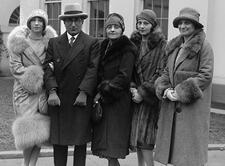
Irene Mayer Selznick
Irene Mayer Selznick was a producer and philanthropist in Hollywood and New York. She wrote in her memoir, A Private View (1983), that Act I was spent under the shadow of her father, the film executive Louis B. Mayer; Act II was marriage to David O. Selznick, producer of Gone With the Wind; and Act III consisted of her career as a Broadway producer. She is known for producing Tennessee Williams’s A Streetcar Named Desire (1947).
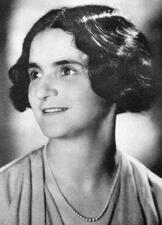
Toni Sender
Toni Sender’s wide-ranging quest to save the world led her from the union hall to the German Parliament (as a socialist) and finally to the United Nations. She helped found Germany’s Independent Social Democratic Party (USPD) and served in the German Parliament from 1924 to 1933. After fleeing to the United States in 1933, she joined the board of the German American Council for the Liberation of Germany from Nazism, and after 1944 she became active with the UN, retiring in 1956.

Sephardi and Mizrahi Women in the United States
Jewish women with roots in medieval Spain, North Africa, and the Middle East have been part of American life since the sixteenth century. From the conversas who arrived in 1654, through the immigrants from around the world who arrived in the late nineteenth and early twentieth centuries, through more recent immigrants and their descendants, Sephardi and Mizrahi women have played important roles in their own communities, in the broader Jewish world, and in the wider American society.

Sephardi Women in the Dutch Republic
In the early modern period, Dutch Sephardim formed a community famous for its wealth, grandeur, and benevolence.
The article highlights the social, economic and religious position of Sephardi women in the Dutch Republic, arriving as immigrants from persecutions by the Spanish and Portuguese Inquisitions and their offspring, settled in generations afterwards. Their adjustment to normative Judaism is being discussed as well as their professional education and their contributions to Sephardi and Dutch society.

Sephardic Food
Sephardic food tells the story of the Iberian Jewish community from its roots in ancient Spain and Portugal through the community’s expulsion in 1492 and subsequent global diaspora. Sephardic women acted as the main interpreters and preservers of the community’s culinary repertoire.
Serah, daughter of Asher: Midrash and Aggadah
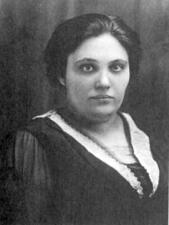
Yente Serdatsky
Proud, independent, enterprising, and contentious, Yente Serdatsky exemplifies the enormous difficulties experienced by Yiddish women writers in achieving recognition. Serdatsky published stories, one-act plays, and dramatic sketches in various Yiddish periodicals, and focussed on the narratives of immigrant women like herself.

Ada Ascarelli Sereni
Ada Ascarelli Sereni helped thousands of Jews emigrate to Palestine during and after World War II following the death of her husband, a Jewish volunteer for the British army who parachuted into Nazi-occupied Europe.
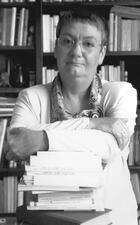
Clara Sereni
Clara Sereni was an Italian writer of Jewish descent. The rich legacy of her Jewish roots as well as her inherited passionate political commitment permeate all her narrative works. The act of writing offered Sereni an opportunity to articulate female subjectivity and language experimentation, providing a setting for exposing issues related to identity, politics of gender, disability, and ethnic diversity while building a new utopia.
Evelyne Serfaty
Evelyne Serfaty was one of the most active women in the Moroccan Communist Party. Through her activities with the party, she militated for Moroccan independence from French and Spanish colonial rule. She was kidnapped and tortured for her brother’s political activities in the early 1970s under Morocco’s post-independence authoritarian state.
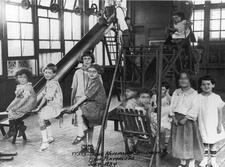
Settlement Houses in the United States
Sex

Stav Shaffir

Naama Shafir
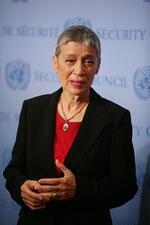
Gabriela Shalev
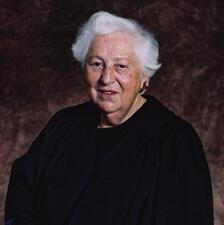
Alice Hildegard Shalvi
Israel Prize Laureate Professor Alice Shalvi was a leading Israeli feminist activist and scholar. Founder of the Israel Women’s Network and the Ben Gurion University English Department and longtime principal of the iconic religious feminist high school Pelech, Professor Shalvi was instrumental in advancing gender issues in Israeli education, society and politics.
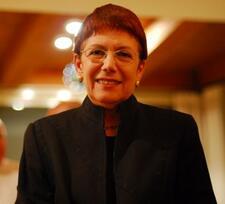
Anita Shapira
Anita Shapira is one of the most important and influential contemporary historians in the field of twentieth-century Jewish and Israeli history. She played important roles in laying the foundations of Israeli historiography and launching the research discipline known today as Israel Studies.

Gertrude Shapiro

Havvah Shapiro
“Our literature lacks the participation of the second half of humanity.” Thus proclaimed the Hebrew writer Hava (Eva) Shapiro (1878-1943) in her 1909 feminist manifesto, the first ever in the Hebrew language. She was the most prolific female Hebraist of her era to remain in the Diaspora and the first woman ever to have kept a diary in Hebrew.
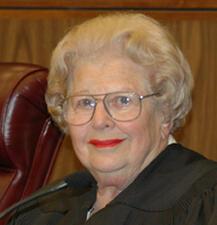
Norma Levy Shapiro
Norma Levy Shapiro’s Jewish background gave her a greater understanding of the evils of discrimination and social injustice, the blessings of liberty, and the importance of each individual’s efforts to make the world better. Her decisions as a lawyer were largely shaped by her Jewish values.
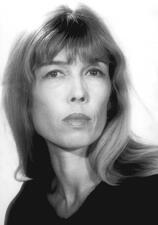
Mirali Sharon
Mirali Sharon was one of Israel’s most important choreographers in the 1970s and 1980s. Her work is characterized by organic integration of music, costume, and décor, with the dance being the outcome of the composer-designer-scenarist-choreographer composite as one fertile, creative team.
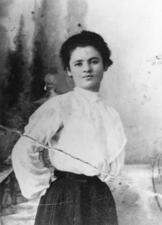
Clara Lemlich Shavelson
Clara Lemlich Shavelson pushed union leaders to recognize the importance of women in the labor movement and sparked the famous Uprising of the 20,000 garment workers strike in 1909. She continued her activism throughout her life, organizing around women’s suffrage and leading food boycotts and rent strikes.


